|
There are several times throughout Scripture that I disagree with Jesus--today’s Gospel being one of them. Anytime I’ve experienced disappointment, injustice, or suffering, I have eloquently told Christ in exasperation, “this sucks,” or “I don’t like this,” or “my way is better.” I could use the same responses to Christ’s words today: “love your enemies…pray for those who persecute you…be perfect.” Are any of these things possible? In a word, no—if attempted alone. But God did not make man and then place impossible expectations on him. As Pope Benedict XVI is often attributed as saying, “you were not made for comfort, but for greatness.” And so, while Christ’s demands may seem unrealistic to every fiber within me, they guide me towards excellence—or, to use Jesus’ word, perfection. This perfection was the status of Adam and Eve prior to the Fall, and in an instance of particular grace, of the Blessed Virgin Mary. Baptism is the first step that allows us to grow in the perfection of the Father. Through it “we are freed from sin and reborn as sons of God; we become members of Christ, are incorporated into the Church and made sharers in her mission” (CCC1213) As sons and daughters of God, we are called to become like our Father. Baptism is the first step taken that enables us to be perfect as our heavenly Father is perfect. From there, we are called to cooperate with God’s grace in order to be transformed. It’s easy to think of our enemies as people bearing swords and armor, but my enemies do not have to be people who dislike me or who do not will my good. I can perceive a neighbor with jarring political views, or a family member with a pointed critique, or a gruff co-worker to be an enemy simply because they may injure my pride or annoy me. The complexity of human relationships and our own woundedness almost ensures that we may perceive enemies in any person—within our friends, family, church, community—at some point in our lives. And yet we are called to love those people and pray for them– especially the ones that may be closest to us. Jesus tells us that loving enemies involves not only doing acts of charity and extending forgiveness, but also praying. Intercessory prayer for our enemies is a form of charity. It means you are thinking about someone who has slighted you and lifting them up to God. It means blessing them in the midst of your hurt or wounded pride and willing their good in spite of it. It means you are engaging with your pain rather than avoiding or ignoring it—a humility which opens your heart to God’s grace and gives God room to work for his glory. It is for this reason that Jesus says to pray for those who persecute you. This relationship between prayer and charity is fundamental to the Christian life and guides us towards the perfection of the Father. Being a Christian should set you apart from the world. “If you love those who love you…what is unusual about that?” Jesus asks. The human way responds with “love your neighbor and hate your enemy.” That’s my first response, too. But the God who made man also knows what we are capable of and what he intended us for. And that is to be like him and share in his divine life. So, if God is love, we are called to be love. And this is made manifest in loving your enemies, praying for those who persecute you, and striving for Godlike perfection. As I’ve mentioned, it’s ok if this seems hard or even undesirable. I’m often reminded of the Scripture passage, “While the Spirit is willing, the flesh is often weak.” While Christ’s commands may sound honorable in theory, they are incredibly difficult in the heat of the moment or in the daily grind. But I believe the point Christ is reiterating in this passage is the need for radical charity—one which is given though not deserved. It was this charity that enabled Christ to look into the eyes of those who tortured and crucified him and say, “Father, forgive them, they know not what they do.” This—this is what separates the Christian from the rest of the world. And it is not reserved for Christ or Mary or for humanity before the Fall—it is possible for each and every one of us if we but open ourselves to God’s grace. The saints learned this well. I remember reading, for example, in the Diary of Faustina about an unjust instance with a priest who interrupted her confession and told her to come back that evening, only to ignore her and send her home that night. Immediately, Faustina praised God, prayed, and offered up sacrifices for this priest. Without a moment’s hesitation, she loved her enemies, prayed for those who persecuted her, and therefore imitated the perfect charity of the Father. As we continue to follow Christ, may we ask for the strength to follow in the footsteps of the saints in order to be perfect as our heavenly Father is perfect. Questions for Reflection: Do you find Christ’s words in today’s Gospel difficult? What’s one step you can take today towards loving your enemies?
0 Comments
The Gospel reading for the Fifth Sunday of Lent is the familiar passage of the adulterous woman and her accusers. For as long as I can remember, this story has been bittersweet: it involves targeted harassment and shame, but also redemption and conversion. At this point in Lent, I don’t think there is a more needed, or relatable, lesson for us to be reminded of and to work on accepting. So, we’re five weeks into our Lenten journey. We’ve been skipping meat on Fridays and trying to live without whatever convenience or vice we decided to give up or purge from ourselves. Maybe we’re praying a little more than we normally would or are setting aside a few minutes to read a daily reflection from those little black books left in the back of our churches. But even with all of these intentional and humbling acts and motivations, we often still feel unworthy or like we’re faltering. Because of this, it’s possible to say that we don’t even need the Pharisees to judge us and bring us for judgement before God – we’re doing it enough for ourselves. To overcome this, I want us to reflect on three things: personal attitude, an open heart, and recognizing what’s in front of us. I think sometimes we’re too hard on ourselves. We allow our own harsh judgements to replace the only one that truly matters: God’s. Our own personal attitude can prevent us from accepting and sharing in the love and grace of God if we constantly feel that we are unworthy or failing. In the Gospel, when the adulterous woman is brought before Jesus, it does not say that she cried or tried to run. In the Gospel account, she lays at the feet of Jesus, lets Him clear her name and, ultimately, lets Him forgive her sins. Here’s a secret I’ve learned that the Gospel has been trying to tell us for a few thousand years now: Man is never worthy on his own, but has been made so by Christ, who offers redemption to all. If man were worthy, Christ would not have needed to redeem us after the Fall. So, we need to stop allowing our own negative perception of our efforts to prevent us from bearing or receiving the fruits of God’s grace and forgiveness. Why was Jesus’ reaction effective with the woman? Christ did not condone her sin, but met the woman in her sinful situation with love and mercy. Surely, such a transformation is not possible without a profound encounter with God’s mercy, an openness to change, and conversion of heart. The adulterous woman of this week’s Gospel is told by Jesus to “Go, and from now on do not sin any more” (John 8:11). As a result of her encounter with Jesus, her heart was changed, and she spent the rest of her life trying to grow closer to Him. We are called to do the same – during the Lenten season or any other time. If we are open to the love of God, it will fill us and strengthen us in our actions. With a faithful attitude and a heart that is open to change, all that is left is for us to encounter God. In order to do this, we must recognize what is in front of us. In the challenges, relationships, beauty of nature, art, and moments of prayer, God is entirely present and inviting us to share in it with Him. What a beautiful gift, and how accessible and truly joyful this is for us! I want to suggest that each of us take a few moments each day this week to reflect on how we’ve gone out of ourselves to be with or grow closer to God. Instead of grumbling about how much we miss Netflix or those amazing chocolate caramels, be proud of yourself for being so committed to your solidarity with Christ and His own suffering. Or, if you tripped up, instead of getting frustrated with yourself, reflect on the three Stations of the Cross in which Jesus falls. Absolute perfection is never what God expects or even desires – He’s just pleased to recognize a desire in us to do better. For more resources to accompany you along your Lenten journey, please click here. Question for Reflection: How can you grow closer to God in the final days of the Lenten season? We live in a world where social media creates a narrative of perfection and curated happiness. The constant pursuit of success, fulfillment and precision fuel our actions. We confuse modern ideals of self-interest, pleasure and minimalism with happiness. This false sense of happiness leads to a severe sense of discontent with our culture of appearances and deception. This, in turn, gives rise to the importance placed on truth and authenticity. Beneath the discontent we all feel is a shared desire to witness and live authentic lives. In a new film, “Pope Francis – A Man of His Word,” we watch the story of a man who practices what he preaches. In the movie, we hear from a religious sister who says that God gives us a pope who is a reflection of what we need in the current times. In a global society that is starved for genuineness, sincerity and truth, Pope Francis provides the world with simple, bite-sized snippets of profound wisdom that are easily understood. In one of those snippets of wisdom, our pope urges us to “Talk little, listen a lot.” As 1 John 3:18 says, “Children, let us love not in word or speech but in deed and truth.” Pope Francis shows us through his actions – washing the feet of inmates, providing a kind touch of prayer to sick children – that tenderness is strength and not weakness. I work in communications and in my profession we have a common phrase that says, “show, don’t tell.” Our culture yearns to see others living out honest, genuine values through action, not words. Pope Francis is an example of someone who shows us how to love and that love is a choice. Love is at the core of Jesus’ message. His teachings are those of love in action. Jesus tells us in Matthew 22:37-40 that the greatest commandments are to “love the Lord, your God, with all your heart, with all your soul, and with all your mind … You shall love your neighbor as yourself. The whole law and the prophets depend on these two commandments.” However, in order for us to love like Jesus, we must be free to give of ourselves to another. Freedom isn’t the ability to do whatever we want, when we want, where we want; it’s the ability to choose what is noble, true and right. Sometimes it seems that as a society we have lost our identities as free beings created by God to love and be loved. We forget that God placed the sense of longing for happiness in our hearts so that we may love him, ourselves and others. This yearning is designed to bring us closer to God and ultimately provides our fulfillment. Questions for Reflection: Who are the people in your life that show you how to freely love others? How can you show love for others in your own way using the gifts bestowed upon you by the Holy Spirit? What are some simple steps you can take to live out your life authentically? 5/9/2018 Everyday Holiness (Part 2): 10 Quotes from Pope Francis' Apostolic Exhortation to Help You Be Holy in Today's WorldRead NowOn April 9, the Solemnity of the Annunciation of the Lord, Pope Francis released his latest Apostolic Exhortation: Gaudete et Exsultate (Rejoice and Be Glad): On the Call to Holiness in Today’s World. This is the third Apostolic Exhortation of his papacy, following Evangelii Gaudium, the Apostolic Exhortation on the Proclamation of the Gospel in Today’s World and Amoris Laetitia, a post-synodal Apostolic Exhortation on Love in the Family. What was his goal? “To re-propose the call to holiness in a practical way for our own time, with all its risks, challenges and opportunities" (GE 2). Without delving too much into a theological or heady definition of holiness, Pope Francis invites us simply and straightforwardly to open ourselves to the specific and unique mission God has created us for. In this, he says, lies true joy and freedom. Our Holy Father takes us back to the Source of Holiness, Jesus Christ, and encourages us to look to the Beatitudes as guides for holiness. Below, I’ve compiled some of my favorite quotes and key take-aways from this approachable, yet profound, exhortation. 1.“A person’s perfection is measured not by the information or knowledge they possess, but by the depth of their charity.”-GE 37 It is tempting to leave the task of holiness to theologians, the clergy, or those who work for the institutional Church. Here, Pope Francis reminds us that holiness is not all about intellectual knowledge, our ability to quote the latest Church document, or the Catechism. While knowledge of the Faith certainly is important, our holiness is measured by the amount of love with which we infuse all of our actions. I can’t help but think of St. John of the Cross’s quote: “In the twilight of life, God will not judge us on our earthly possessions and human successes, but on how well we have loved. 2. “Jesus explained with great simplicity what it means to be holy when he gave us the Beatitudes (cf. Mt 5:3-12; Lk 6:20-23). The Beatitudes are like a Christian’s identity card…In the Beatitudes, we find a portrait of the Master, which we are called to reflect in our daily lives.” -GE 63 I love that Pope Francis ultimately leads us to Scripture and to Jesus Christ Himself as the model and teacher of holiness. It can get overwhelming trying to be holy and define holiness in our modern world. The Beatitudes, Pope Francis says, are like a “Christian’s identity card.” They point us directly to holiness and guide us along the way. Spending time reflecting on each of the Beatitudes will help us to better understand what it means and looks like to be holy. 3. “It is true that the primacy belongs to our relationship with God, but we cannot forget that the ultimate criterion on which our lives will be judged is what we have done for others. Prayer is most precious, for it nourishes a daily commitment to love. Our worship becomes pleasing to God when we devote ourselves to living generously, and allow God’s gift, granted in prayer, to be shown in our concern for our brothers and sisters.” –GE 104 Here, Pope Francis is reminding us that our prayer must lead to action. We cannot be holy in a vacuum, but are called to live out holiness amidst our brothers and sisters. Service to the world, as promoted by Catholic Social Teaching, is crucial if we are to be true followers of Christ. While our relationship with God always comes first, this relationship turns our gaze outward in order to foster and build relationships of love, service, and communion with our brothers and sisters. 4.“Far from being timid, morose, acerbic or melancholy, or putting on a dreary face, the saints are joyful and full of good humour. Though completely realistic, they radiate a positive and hopeful spirit.” -GE 122 Holiness leads to joy – this is the true fruit of our living a holy life. As Christians, we are called to exude the joy of the Resurrection and of the Gospel in the midst of a world plagued by sin, brokenness, and suffering. While holiness is joyful, is does not exist in an alternate reality, but embraces the truth of the world in which we live. Pope Francis says that this holiness is “realistic” and allows us to engage the world while still looking beyond it to the glory of eternal life. 5. “God is eternal newness. He impels us constantly to set out anew, to pass beyond what is familiar, to the fringes and beyond. He takes us to where humanity is most wounded... God is not afraid! He is fearless! He is always greater than our plans and schemes. Unafraid of the fringes, he himself became a fringe (cf. Phil 2:6-8; Jn 1:14). So if we dare to go to the fringes, we will find him there; indeed, he is already there.” –GE 135 The theme of going outside our comfort zone has been one Pope Francis has promoted since the beginning of his papacy. He calls us as Christians and as the Church to wake up, open our doors, and shake the dust off ourselves by imitating God who is “eternal newness.” Holiness, therefore, means being active, bold, and unafraid. It means meeting Christ in the fringes of society and finding him outside the confines of our Church walls. 6.“Let us allow the Lord to rouse us from our torpor, to free us from our inertia. Let us rethink our usual way of doing things; let us open our eyes and ears, and above all our hearts, so as not to be complacent about things as they are, but unsettled by the living and effective word of the risen Lord.” –GE 137 Here, Pope Francis continues to invite the Church to an examination of conscience. Are we doing things out of habit, because we’ve always done something a certain way, or are we open to the promptings and workings of the Holy Spirit as we approach our task of holiness and evangelization? The example and word of Jesus Christ should always “unsettle” us to some degree. We do not achieve perfect holiness at some point in our life and then rest on our haunches! The journey lasts throughout our lifetime. 7.“Are there moments when you place yourself quietly in the Lord’s presence, when you calmly spend time with him, when you bask in his gaze? Do you let his fire inflame your heart? Unless you let him warm you more and more with his love and tenderness, you will not catch fire. How will you then be able to set the hearts of others on fire by your words and witness? If, gazing on the face of Christ, you feel unable to let yourself be healed and transformed, then enter into the Lord’s heart, into his wounds, for that is the abode of divine mercy.” -GE 151 I love this passage from Gaudete et Exsultate. Pope Francis takes on a more reflective tone here and invites us to be prayerful along our journey to holiness. He gets to the heart of holiness by asking us some profound but unavoidable questions. Essentially, he’s asking if we have truly encountered Jesus Christ and his infinite love. This is fundamental to holiness, for our encounter with Christ’s love is what will carry us forward on our journey and sustain us. Take some time to pray with these questions and ask the Lord for a deeper encounter with his love. 8.“For this spiritual combat, we can count on the powerful weapons that the Lord has given us: faith-filled prayer, meditation on the word of God, the celebration of Mass, Eucharistic adoration, sacramental Reconciliation, works of charity, community life, missionary outreach. If we become careless, the false promises of evil will easily seduce us.” –GE 162 As with any journey, we will encounter setbacks and temptations as we strive for holiness. Pope Francis devotes a section of his exhortation to the reality of evil and our need to acknowledge it. Pursuing holiness also means engaging in spiritual combat. We not only face our own weaknesses or the sins of others, we also face an actual opponent: the devil. Here, Pope Francis encourages us to count on “the powerful weapons that the Lord has given us.” We are not alone as we face evil, but find our strength in the Church, the sacraments, our brothers and sisters, etc. 9. "Discernment is necessary not only at extraordinary times, when we need to resolve grave problems and make crucial decisions. It is a means of spiritual combat for helping us to follow the Lord more faithfully. We need it at all times, to help us recognize God’s timetable, lest we fail to heed the promptings of his grace and disregard his invitation to grow." –GE 169 Discernment is a way of life. It means inviting the Lord into our actions and decisions and asking for his guidance as we go about our day. Pope Francis reminds us that discernment is not reserved only for major life decisions such as a move, our vocation, a job opportunity, etc. Discernment should be engrained into our spiritual life and helps to ensure that we are living our lives according to God’s plan rather than our own. 10.“Mary is the saint among the saints, blessed above all others. She teaches us the way of holiness and she walks ever at our side. She does not let us remain fallen and at times she takes us into her arms without judging us. Our converse with her consoles, frees and sanctifies us.” -GE 176 We cannot pursue holiness without looking to the perfect model of human holiness: the Blessed Virgin Mary. Pope Francis concludes his exhortation by inviting us not only to look to Mary, but to go to her and build a relationship with her. She always guides us closer to her Son. Mary is a gift to us given by Christ himself to journey alongside us on the path to heaven, don’t forget to use her as a resource! **This is part two of a two-part series of quotes from Pope Francis’ latest Apostolic Exhortation: Gaudete et Exsultate. For more information and resources on Gaudete et Exsultate, please click here. Questions for Reflection: How does Pope Francis challenge your idea of holiness? Do you agree with the Holy Father’s definition? Where do you see holiness being lived out today? This year, I tried something new for Lent. Instead of giving up sweets or the snooze button on my alarm clock, I felt God calling me to spend more time in prayer with a regular reflection routine. I am someone who has to constantly fill my schedule with things to do and places to go—I knew God was asking for silence in my life. Rather than making an unrealistic commitment during Lent, I selected something I could add to my already established morning and evening routines. I bought a Lenten journal that included a Bible verse and reflection with a corresponding prayer and question for free response. There were a few days I missed an entry and would make it up, but overall I felt I accomplished my Lenten promise and journey. The biggest thing I learned from this Lenten walk with Jesus was the idea of progress and not perfection. As Matthew Kelley says, “we’re imperfect beings striving for perfection, and we have to learn to celebrate our progress.” Becoming more aware of what went on in my day and noticing where I was or was not being my best self made me more aware of God’s presence in my life. I could more easily notice when something in my day was a gift or where He was visibly working on something in my life. As Lent progressed, I found myself yearning to know God in my life more and more. I went to Adoration more, sought out additional reflections through Kelley’s Dynamic Catholic resources, and attended my local women’s group more frequently. I think that’s what Lent should be: being on fire for your faith in God. Our Lenten practices shouldn’t just last for 40 days, but should be 365 days a year—though perhaps not to such a high degree as during Lent. Since Easter, I have continued to journal and have started a gratitude list I add to each day. Here are some thoughts regarding seeking progress and not perfection that I have found helpful to continue working on after Lent:
Question for Reflection: What are some ways your past Lenten journeys have changed your spiritual life after Easter? For many of us, the “infancy narratives,” from Matthew and Luke are well loved, but also well worn. Gabriel’s visit to Mary, Mary’s visit to Elizabeth, the birth of Our Lord in Bethlehem — not only do we ponder these events every year during Advent and Christmas, but also every time we pray the Joyful mysteries of the rosary. We know the stories, we know what they illustrate, we know why they’re important. But knowing the basic bullet points of the New Testament is not enough. We are called to know our Lord more deeply, more intimately. Dei Verbum compares the gift of Scripture to the gift of the Incarnation: “for the words of God, expressed in human language, have been made like human discourse, just as the word of the eternal Father, when He took to Himself the flesh of human weakness, was in every way made like men” (13). The Holy Spirit has bundled the immensity and perfection of God into our limited and imperfect human language. Like Christ contained himself in human form, so too has the Father contained himself in our human tongue. This Advent, let us return to the infancy narratives with fresh eyes. Recognizing that, like St. Ignatius advised his Jesuits to do while on mission, we can use the Word to ignite our senses, engage our collective memory as the people of God, and to understand our Lord as both father and friend. The Visitation of Mary to Elizabeth (Luke 1:39-56) is one moment from the infancy narratives that can prepare us in a special way for the coming of our Lord this Christmas. It provides us with a snapshot of Mary as a loving servant who is familiar with the Scriptures, bubbling over with joy, and confident in the promises of her God. Her example is one we can imitate even today. Spend some time with the narrative here and then consider Mary’s threefold approach to Advent:
Amidst the flurry of shopping, visiting, and end-of-year work activities that will surely fill our Advent calendars this season, take five minutes a day to spend time with God in prayer. If you struggle with prayer and don’t know what to say, read the Magnificat. Imagine a young, triumphant Mary, glowing before gray-haired Elizabeth and try to imagine the feelings of joy and wonder Mary must have felt in those moments. Then ask the Lord to help you channel that wonder as you prepare a place for him in your heart. Let your soul proclaim the greatness of the Lord this Advent, through joy, Scripture, and service. Tomorrow the Church celebrates St. Catherine of Siena, a 14th century tertiary Dominican and Doctor of the Church, who is renowned for her ardent prayer, peacemaking, and writing. Her life is filled with stories that reflect a transparent faith in the power of God’s intervention, her desire for unity within the Church, and her gifts in healing and touching the lives of others.
I discovered St. Catherine a few years ago when I read this passage. She writes these words with the same devotion and absolute trust with which she lived her life by: “I don’t want you to yield to weariness or confusion, no matter what may trouble your spirit. No, I want you to keep the good, holy, and true faithful will that I know God in his mercy has given you. Be glad…celebrate! Without any slavish fear take courage. Don’t be afraid, no matter what has happened, no matter what you see coming. Take courage for perfection is very accessible” (excerpt from her Letter to Br. Raimondo of Capua at Avignon). Whenever I read these words, they indicate to me that St. Catherine must have experienced trials herself and had her faith tested. Don’t we all struggle with weariness or battle the armies of confusion? St. Catherine doesn't want us to get caught up in the messiness of our sins and plights but rather in the will of God that will lead us through our struggles. The reason we should "be glad and celebrate" is because God's will is there to guide us through the midst of it all. And this, as St. Catherine reminds us, is a wonderful gift of God's great mercy, which is able to penetrate into our past, present, and future experiences. God’s will can sometimes seem so hard to understand, a mystery that is more hidden than it is found. Many often ponder, "What is God's will for my life? and ask, "Lord, what is your will…what should I be doing?” But St. Catherine knows God's will is more simple and apparent than we think. He doesn't hide it so much as reveal it or deter us so much as lead us to it. We should “take courage” because God has revealed everything in the perfection of Christ his Son, who lived among us and entered into the human experience. He is so near, so accessible. What is God’s will for us then except to grow into the perfection of Christ? St. Paul reminds us that, “God has called [us] through our Gospel to possess the glory of Jesus Christ.” (2 Thes. 2:14) Every day we are invited to grow towards sanctity and heaven by rising with Christ in the midst of our circumstances. We are to mature in love so as to become ourselves fully in Christ. If we strive for this first, God will surely lead us down the narrower paths of our lives. God is always at work in us if only we open ourselves to him. I invite you to think and pray about your own life. How have you grown in virtue over the years? This is evidence of God’s grace alive in your heart and mind! St. Catherine points directly to Christ, the Fountain of Life that is never depleted of its mercy and compassion! In him we really can do anything. Let us then “take courage” in our lives and “celebrate” Christ and the mercy of God! We need not be afraid! Thank you St. Catherine for your life and example! Pray for us, that we can fight the good fight and become ourselves fully in Christ. May we experience deeper the reality of God’s great mercy. For more resources on the Jubilee Year of Mercy, click here. We are often our own harshest critics. This is the case in my own life, and sometimes I look up in exasperation at God and tell Him I’m tired…of myself. In our culture of busy-ness and perfectionism, high achievement and the constant thirst for more, it’s tempting to balk at our deficiencies, cringe at our weakness, run from our blemishes. How could I have said that? Why did I fail at that again? How have I not learned? These thoughts run through our defeated minds if we forget in this Jubilee of Mercy to be merciful to ourselves. So often, we turn to shame, annoyance and frustration when we fall, sin or come face-to-face with our humanity. I imagine this is how the woman at the well felt as she went to get water at the hottest time of day. Divorced and remarried multiple times, she was seen as unclean by her Samaritan kinsmen. She avoided the other villagers at all costs in order to protect herself from their condemning gaze. There was one gaze, however, that she was powerless against: His. It was a gaze far more surprising than all others. A gaze not of condemnation, but piercing in its persistence and compassion—the gaze of love from God Himself. What must it have felt like to look up in the noon day heat and meet His gaze? What must it have felt like to be seen, known, and loved by the Son of Man? This is Christ’s eternal gaze upon all of us. If you’ve already experience it, you can relate to the Samaritan woman. If not, I invite you to look up from your well and meet Him there. How He waits for us—the Christ! How He goes out to our man-made wells of sin and shame, of selfishness and pride, of indifference and bitterness to meet His children, to remind them that they are loved! He comes to you, to me. The Lover pursues His beloved. The Shepherd pursues His sheep. The Father pursues the prodigal son. God desires us. Encountering this love and mercy leaves no room for indifference or fear. We long to reciprocate this love, as the woman at the well did. She left her jar, the very reason she came to the well, in order to proclaim the Christ to her entire town—the town she had avoided at all costs (cf Jn 4:28-29). This is radical. This is the conversion that results from the beautiful and delicate balance of love and justice, mercy, and truth. We are loved even when we have deemed ourselves unlovable. We are desired even when we remain indifferent. We are sought when we hide. And today we are being called and sent forth to bring His gaze to the nations. Why? Because we were created for greatness, though we are pilgrims living in a fallen world. We were created for life with God Himself; to live blameless, spotless, white as snow. Yet we live in a world in which we are often warring against God, ourselves, one another, and nature. In this Jubilee of Mercy, we are reminded that our scars or weaknesses should not scandalize us to the point of paralyzation or despair. We can no longer be imprisoned by our sin because we have a Savior—one who calls us to transfiguration and gives us the hope of the Resurrection, which we celebrate in 10 days. The piercing love of God elevates us to be salt of the earth, light to the nations. If we live in the certainty of being loved, we cannot refuse to be gentle and merciful to ourselves. Only in receiving His merciful love each day will we be able to love ourselves purely in the way that enables us to purely love our fallen brothers and sisters. Rather than cower at our weakness, going to the well at noon, let us embrace it—giving ourselves fully and completely to the One who can transform our weakness for His glory! May we cling to Him, not to ourselves, surrendering our folly to His wisdom, our sin to His perfection, our indifference to His love, our brokenness to His wholeness. Leave your jar at the well and go forth. For more resources to guide you throughout this Jubilee of Mercy, click here.
On November 2nd of each year, Catholics observe The Commemoration of All the Faithful Departed, also known as All Souls Day. We are encouraged to pray for the dead and to remember our loved ones who have gone before us. Our prayers for these souls assist in expediting the “process of purification.” The Church recognizes that few people achieve perfection in this life (after all, we are human!), and therefore, go to the grave with remaining traces of sinfulness; a period of purification is necessary to prepare the soul to join God. The Catechism of the Catholic Church explains, “All who die in God’s grace and friendship, but still imperfectly purified, are indeed assured of their eternal salvation; but after death they undergo purification, so as to achieve the holiness necessary to enter the joy of heaven.” This is called Purgatory. It is important to recognize that Purgatory is not a state of punishment, but rather a cleansing very much like our Baptism. Think of it this way: Purgatory makes the soul perfect forever! Our prayers for the deceased put their souls in the HOV lane to complete purification and unity with God—pretty awesome! In remembering our deceased loved ones on All Souls Day, it is common for people to visit cemeteries and decorate grave-sites. For this reason, this feast day reminds me of my grandfather, Sal, or as I call him, Pa-pa. Pa-pa was not exactly a church-going Catholic until the last year or so of his life, but he religiously honored and prayed for the dead by visiting the cemetery of our relatives and planting flowers, placing wreaths or palm. Today, my mom, her two sisters and their husbands continue Pa-pa’s tradition of visiting the cemetery and decorating the grave-sites of all their loved ones several times throughout the year. I make an effort to join them at least once a year to pay tribute to my relatives and to follow my grandfather’s example of acknowledging those who have gone before us. I will never know why Pa-pa did not attend Mass with my grandmother for much of his adulthood, but something drew him into church towards the end of his life. Perhaps he knew his time was approaching and he found solace with the Lord. This year, I will be praying for all of my deceased loved ones, but I will be thinking especially of my Pa-pa with great hope. Be sure to reflect on the memories of your loved ones. If you can, make some time to visit a cemetery, light a candle and attend Mass this All Souls Day. *This post was originally published here and was used with permission.
Having just celebrated the Second Sunday of Advent, we heard in the First Reading from Isaiah how, “Every valley shall be filled in, every mountain and hill shall be made low; the rugged land shall be made a plain, the rough country, a broad valley. Then the glory of the LORD shall be revealed...” What always strikes me about this reading is how the Lord destroys every obstacle in His way, and all that stands against Him is defeated. This alone is important to remember I think, because in the midst of so much activity and stress it is easy to forget that our Lord is always the one in charge and has the power to wash away all of our blemishes and sins. Everything with imperfections is made perfect in Him.
Advent is a time of preparing ourselves for the birth of our Savior and the second coming of Christ. The Church gives us this liturgical time so that we may ensure we are ready for Christ’s entrance into our midst on the Solemnity of the Nativity of our Lord and prepare for how “He will come again in glory to judge the living and the dead.” So, Advent is a time of great hope, expectation, and preparation, but how exactly can we prepare our hearts for Christ? How can the Lord wipe away my own sin, my own imperfections so that I can worthily prepare for His Coming? Partaking in the Sacrament of Reconciliation is a perfect way to prepare our hearts for Christ’s coming and be ready for His arrival. We hear in the Second Reading of this past Sunday how the Lord, “is patient with you, not wishing that any should perish but that all should come to repentance.” The Lord never tires of extending forgiveness to us, He is ever merciful. He wants the best for all of us, even when sometimes we don’t know exactly what that is. Just as in Isaiah, the Lord defeats and washes away all of our sins and imperfections with this wonderful Sacrament. Pope Francis during one of his Wednesday audiences said, “every time we go to confession, God embraces us.” With all of the different parties and events during this time of year, with all the invitations, there is one invitation that you should be certain to consider. The Lord has already extended to us the invitation, an invitation that prepares us for Christ’s coming by partaking in the Sacrament of Reconciliation. The question is - will you accept it? Conor Boland is a College Ministerial Intern at One Bread, One Cup and is an undergraduate at The Catholic University of America. For more information on Reconciliation and the Advent season, please see our Advent Resources! John: 15:9-11: As the Father loves me, so I also love you. Remain in my love. If you keep my commandments, you will remain in my love, just as I have kept my Father’s commandments and remain in his love. “I have told you this so that my joy might be in you and your joy might be complete.” In today’s Gospel, we are given a clear picture of how we can live life in the joy of Christ. In order that our “joy might be complete”
Jesus tells us that we must imitate his love for the Father. Furthermore, Jesus references clear and simple guidelines on how to remain in his love, the commandments. In my own life, I believe the key here is the need for us to imitate Christ. We often say that imitation is the highest form of flattery, and that could not be more true. Our goal should be union with God in heaven and the easiest way to achieve that union is by living a Christ-like life. Christ already loves us dearly, but how enamored is he when he sees us loving as he taught us! Christ yearns to be in relationship with us, for us to know him by loving like him. Mother Teresa had a beautiful devotion to Christ on the cross. When he exclaimed, “I thirst,” she interpreted this as Christ’s thirst for souls. He has an intimate longing for each of us to “remain in his love,” to know him and to love him. Therefore, when we imitate the love of Christ, we not only acknowledge the truth of his actions, but also are called to further relationship with God. It is crucial for us to remain in Christ’s love and in relationship with him because we thirst for him as well. Our world longs for perfection and satisfaction, but we will never be able to achieve this as the world sees it. The perfect body, the perfect job, the perfect grades, house, family, car – none of these can satisfy us like we often think it will. Christ knows this because he knows us intimately – “You formed my inmost being; you knit me in my mother’s womb” (Ps 139:13). He did not merely make us for this short life on earth – Christ made us to live eternally with him in heaven! Christ calls us to live this calling as citizens of heaven and to follow his commandments so that we may know him and his infinite joy. Let us pray with St. Paul that we may not be conformed to this age, but that we may be transformed by the renewal of our minds to the way of heaven, that we may discern what is the will of God, “what is good and pleasing and perfect” (Romans 12:2). In conforming ourselves to Christ, in imitating his actions of love to all people and to the Father, by obeying the commandments laid out before us, we are called to be in relationship with him and thus take a most important step on the journey toward our salvation. It is important that we recognize the examples around us in Mother Teresa, St. John Paul II, our mothers and fathers, but it is also important to recognize that their holiness and their passion for the Lord steps from an imitation of Christ’s life. As the Easter season comes to a close in the next couple weeks, let us make a concerted effort to imitate Christ’s love and to conform ourselves to him. Nicholas Shields is a graduate of The Catholic University of America with a degree in Mathematics. Growing up in a large Catholic family gave me the opportunity to interact with the Catholic Church’s love for Mary and the Saints. However, looking back just recently, it is no surprise that my appreciation of Mary came to being as I grew in a deeper appreciation of my own mother. I tell people that I would be content if I were a fraction of the person that she is. While I could go on forever about how wonderful my mother is, I’ll limit myself to just sharing one characteristic of her that I think is crucial for understanding and appreciating Mary as the Mother of God: when I go to my mom for advice, she will always end the conversation suggesting that I pray about it and ask God for the necessary virtues to make an action or decision. By asking me to pray about it, she helps me direct my attention toward Christ.
You may or may not have this same experience with your own mothers, but Mary is the Mother of God, making her Our Mother as well. We all have the opportunity to approach Mary’s open arms in the hope of receiving her comfort and love. But even more importantly, she is able to point us to Christ, to encourage us to grow our relationship with her Son. Look at scripture and you can see where Mary helps guide people to Christ. In particular, look at the Wedding at Cana, for instance, in John 2. Mary and Jesus were at a wedding, and the hosts ran out of wine. Mary went to Jesus and told him that they were out of wine and were in need of more. Jesus responded to her, "Woman, what is that to me and to you? My hour is not yet come." Mary did not really respond to this. Instead, she went to the waiters and told them, "Do whatever He tells you." Her remark shows that she knew that He was about to perform a miracle. She knew that he would fulfill her request. Jesus instructed the servants to fill some huge jugs with water. Because of Mary's advice they obeyed. Think about this now: Mary told Christ what the servants needed, and she then immediately told the servants to do as Jesus tells him. Does Mary not tell Christ our needs, and then instructs us to do as her Son instructs us to do? By going to our Blessed Mother, Mary can help us follow the path to Christ the way she helped the servants obey Jesus. Like the Wedding at Cana, she will tell her Son our needs and then, pointing to her Son, tell us to do as He instructs us. Mary not only directs us towards Christ. Our hearts yearn to be like Mary. This is because Mary fulfilled God’s invitation of perfect love, which allows her to become the person she was meant to be. We have that same calling. While we will not achieve this goal in absolute perfection the way Mary did, we can look to Mary as our human role model for true, authentic Christian love towards God and towards our fellow human being. Mary, being the New Eve of Creation, can directly link us to God. Think about this, if Mary directly brought Christ to the world, then would she directly bring us to Christ through prayer? She is our direct route to growing closer in Christ, as she knew Christ better than anyone else. So maybe like some of our own earthly mothers, Mary is our role model and our guide towards holiness. Andrew St. Hilaire is the Assistant to the Director of the Catholic Apostolate Center They came to Capernaum and, once inside the house, he began to ask them, “What were you arguing about on the way?” But they remained silent. They had been discussing among themselves on the way who was the greatest. Then he sat down, called the Twelve, and said to them, “If anyone wishes to be first, he shall be the last of all and the servant of all.” Taking a child he placed it in their midst, and putting his arms around it he said to them, “Whoever receives one child such as this in my name, receives me; and whoever receives me, receives not me but the One who sent me.” – Mark 9:33-37
Here, we have another classic example of Jesus’ disciples screwing up. I love them for that. In my struggle to figure out how I can better receive Christ, the knowledge that these great saints also constantly screwed up keeps me from spiritual perfectionism, and instead lets me focus on growth. In this particular case, the disciples failed to discern that concern for the welfare of others needed to trump their own ambition. In my circles of Catholic emerging adults, we talk a lot about discernment, and there is an ever-growing area within practical Catholic spirituality about how to practice discerning well. We discern marriage or religious vocation; we discern where to begin a job search; we discern whether even to begin that job search or go on for more education. We discern our roles within changing friendships. It’s so common that among my friends, discernment is even tossed around as a joke, such as when we “discern” whether we should order another pizza for the game watch party. However, what struck me in this Gospel passage is the fact that the disciples clearly had to practice something else before moving on to discernment. The prerequisite to discernment must be a well-formed conscience. The disciples had no idea what they should have been talking about along the road, but they were ashamed when Jesus asked what their conversation was – they knew, deep down, that who was the greatest among them certainly wasn’t a question worth their consideration. Was that gut feeling present when the conversation started? The Catechism of the Catholic Church §1779 explains the need for introspective vigilance, and quotes the advice of St. Augustine: It is important for every person to be sufficiently present to himself in order to hear and follow the voice of his conscience. This requirement of interiority is all the more necessary as life often distracts us from any reflection, self-examination, or introspection: “Return to your conscience, question it… Turn inward, brethren, and in everything you do, see God as your witness.” (Saint Augustine) If we are truly going to discern as often as we profess about matters great and small, we need to attend to this interiority. Prayerful discernment, or choosing between good things, is hard enough. It becomes much harder if you can’t see what is not of God and can’t rule that out immediately. Today is the memorial of Teresa of Avila, a great contemplative. She certainly believed that when you don’t distract yourself with things that aren’t worth filling your mind, that’s when you can hear God. In Teresa’s meditation on the Song of Songs, she warns her religious sisters against “false peace” with oneself - a “peace” that anesthetizes and atrophies the soul. She took the time to identify nine kinds of false peace, which can stymie our growth into the disciples that God created us to be and which Christ calls us to be. We are each like the disciples in this Gospel: imperfect, but called by Christ to recognize when we could have done better. When we recognize the wrong questions, we can begin to discern which are the right ones. The disciples didn’t remain at peace with their pride, and grew into some of the greatest servants of others. For myself, I pray that I can stay away from the false peace that would make me complacent with the children and adults whom I serve as a parish director of religious education. Lord, help me to receive You in them. Laura Berlage serves as Director of Religious Education for Incarnate Word Parish in the Archdiocese of St. Louis. |
Details
Archives
July 2024
Categories
All
|
About |
Media |
© COPYRIGHT 2024 | ALL RIGHTS RESERVED

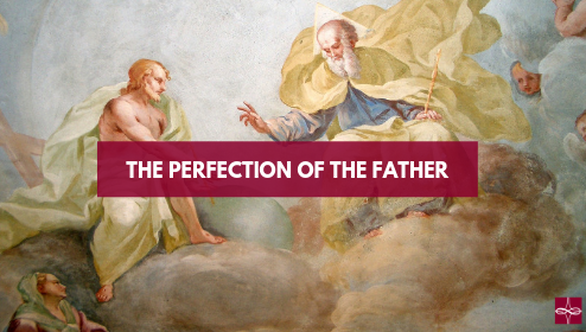

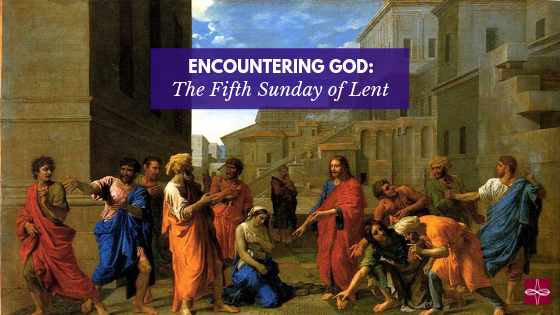
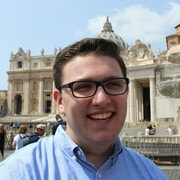
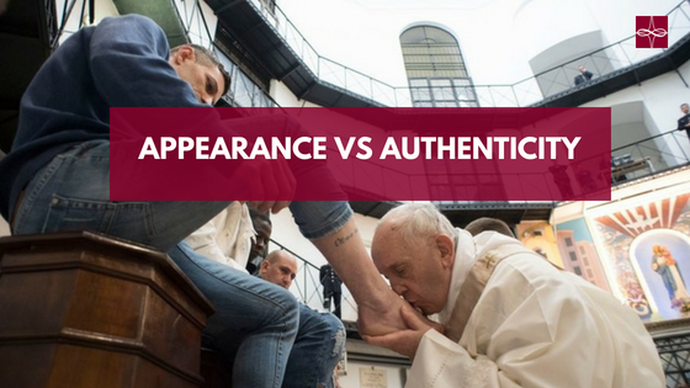

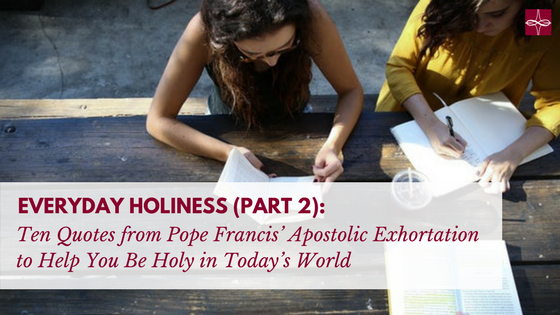



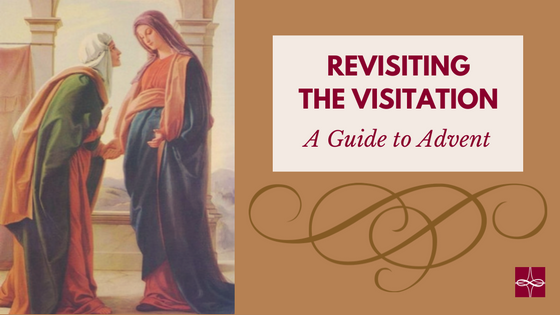

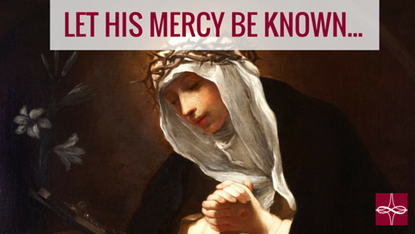









 RSS Feed
RSS Feed